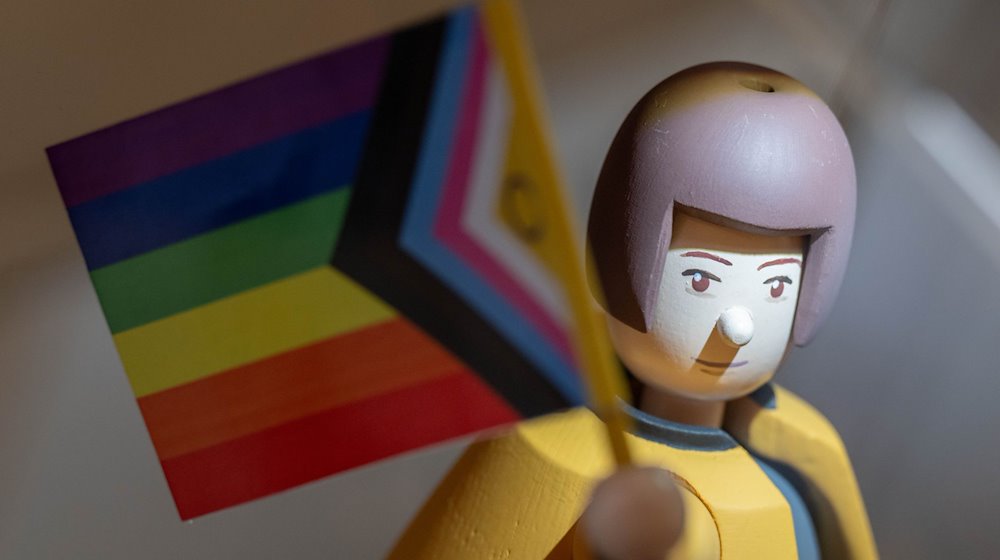With her guitar on her back, the blonde musician leans casually against the colorful chimney. Thin smoke rises from it. Chemnitz students have named their wooden figure "Empowerella", which is reminiscent of Nina Kummer from the indie pop band "Blond". She is one of four creations with which they want to shake up the dominance of smokers in traditional Erzgebirge handicrafts. To this end, the students are focusing on women and marginalized groups.
Anyone who looks at their Christmas decorations at home will quickly notice: Women are very underrepresented among the incense figures, explained cultural scientist Melanie Hühn. In her master's seminar at Chemnitz University of Technology, the students initially dealt with topics such as tradition, gender, stereotypes and representation. They visited museums and folk art workshops. They then worked more intensively with some groups and finally designed their own smoking figures. Their ideas were then implemented by wooden toy maker Markus Weber in Schneeberg.
In addition to "Empowerella", three other figures were created: a queer smoking figure waving a rainbow flag, a Vietnamese nurse and a critical professor. "Technical universities like here in Chemnitz are generally very male-dominated," explained Hühn. The figure is therefore intended to pay tribute to women in science.
He is not yet aware of any smoking figures from the Ore Mountains, explained Frederic Günther, Managing Director of the Association of Ore Mountain Artisans and Toy Manufacturers, when asked. However, it is customary in Erzgebirge arts and crafts to pick up on social changes and take a tongue-in-cheek look at authorities. Recent examples include the figurine of a climate glue and that of a stoner. In addition to the regional origin, it is important to the association that the quality is right, emphasized Günther. For example, there are now also some female nutcrackers.
According to him, women play an important role in the workshops. In recent years, more young women have been trained as wooden toy makers than men. As a result, a more modern image of men and women is entering the workshops than in previous generations. And women have made a significant contribution to the fame of handicrafts in the region. Probably the best-known workshop was once founded by Grete Wendt and Margarete Kühn - known worldwide for their eleven-dot angels.
But why are there fewer women smokers than men? Many of the figures represent professions that are or were male-dominated, explained Hühn. Foresters, hunters or miners, for example. In addition, smoking a pipe - a typical feature of a smoking figure - was more of a man's job. Günther mentions another reason that plays an important role for the workshops: Smoking men were in greater demand than smoking women.
And what will happen now with the modern figures made by the Chemnitz students? So far, they are unique. Together with the results of the one-year project "The Smoking Chemnitzer:in", they will be on display this weekend in a small show on the Chemnitz Brühl. "Perhaps a manufacturer in the Ore Mountains will be interested in producing them in series," said Hühn. Then next year, when Chemnitz and the region attract guests from Germany and abroad as European Capital of Culture, they could also serve as souvenirs for some visitors, she hoped.
Copyright 2024, dpa (www.dpa.de). All rights reserved










